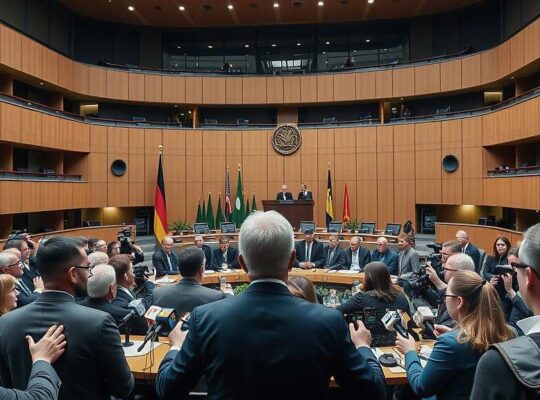Germany’s Green party has indicated willingness to engage in cross-party discussions regarding further electoral law reform. Till Steffen, a legal policy spokesperson for the Greens, stated the party is “open and will examine any proposals put forward” according to an interview with the Frankfurter Allgemeine Zeitung.
Steffen also commented on the pace of progress from governing partners, noting that the establishment of a parliamentary commission to address electoral reform – a commitment made in the current government’s policy program – appears to be delayed. “We are now well into the second half of the year. They seem to be having difficulties even getting started” he observed.
Steffen remains a proponent of the electoral law recently enacted by the current coalition government, which caps the size of the Bundestag at 630 seats and eliminates overhang and leveling seats-a change that can result in some constituency winners not securing a seat in parliament.
The recent changes have drawn criticism, notably from CDU General Secretary Leopold Born, who described the current system as “unfair” and advocated for reform. One possibility, he suggested, would be a reduction in the number of constituencies from the current 299 to 270, echoing an earlier proposal from the CDU. This earlier proposal included a target of 598 parliamentarians and allowed for up to 15 uncompensated overhang seats, potentially skewing the proportionality of representation in favor of the CDU due to its traditional strength in direct mandates.
Both the CDU and SPD agreed in their coalition agreement to revisit electoral law, requiring a simple majority to enact changes. Bundestagspräsidentin (Federal Parliament President) Julia Klöckner urged expedited action during the parliamentary summer recess. “Either we need to say we want a completely different electoral system, abolishing first and second votes, or we need to strengthen the importance of the first vote” she stated.
Both Steffen and Born affirmed the proven efficacy of Germany’s two-vote system. Born asserted that the first vote represents a direct mandate of trust from constituents. He believes that winning a majority locally should guarantee a seat in the Bundestag.
Steffen also opposes the complete abolition of constituencies and supports maintaining the two-vote system. He articulated the core challenge: “We have three goals – limiting the size of the Bundestag, ensuring every vote is counted and guaranteeing representation for every constituency winner. However, only two are achievable”. He explained that allowing all constituency winners to secure seats would either distort proportional representation through overhang seats or necessitate an expansion of the Bundestag to compensate for those seats.












